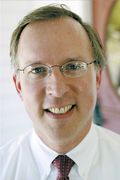 City Manager Dan Keen has responded to inquiries about pensions. The Council negotiated new contracts with all employee bargaining units this summer. Employee contributions toward pensions have increased and a new, less generous tier of benefits is being established for new hires.
City Manager Dan Keen has responded to inquiries about pensions. The Council negotiated new contracts with all employee bargaining units this summer. Employee contributions toward pensions have increased and a new, less generous tier of benefits is being established for new hires.
Here's his email to all City Council candidates and the City Council:
The City has two retirement programs, one for sworn personnel (referred to as Safety), and one for all other staff (referred to as Miscellanous). Both programs are a part of the Public Employee Retirement System, commonly referred to as PERS.
The basic formula for retirement benefits in Concord is as follows: For Safety employees, an employee retiring after reaching age 50 and having at least 5 years of service will receive a pension which is based upon their years of service times 3%. So, for example, a 25-year public safety employee who is age 50 at retirement would receive a pension based upon 75% of their highest 12-month salary. This formula is commonly referred to as "3% at 50".
For Miscellaneous employees, an employee must be at least 55 years of age at retirement, and have at least 5 years of service to receive a pension which is based upon their years of service times 2.5%. So, for example, a 25-year miscellanous employee who is age 55 at retirement would receive a pension based upon 62.5% of their highest 12-month salary. This formula is commonly referred to as "2.5% at 55".
On tonight's Council agenda, the City Council will consider a change to the program for Miscellaneous employees. If approved, this change would apply to all newly hired Miscellanous employees, and would change the formula to "2% at 55". Thus, a 25-year Miscellaneous employee age 55 at retirement would receive a pension based on 50% of their highest 12-month salary. The formulas in place for Safety and Miscellaneous employees are contractual obligations of the City, and for all practical purposes, can not be changed by action of the City Council with respect to existing employees hired while those formulas were in place. However, through the labor negotiation process, the formulas for new employees can be changed, and that is why this item is on the agenda tonight.
The City pays for the costs of these retirement programs throughout the year. The pension costs are divided into an "employee share", and an "employer share".
For the Safety program, the employee share is 9%, and for the Miscellaneous program, the employee share is 8%. However, until recently, all of the employee share for both programs was "picked up" by the City, a result of negotiated contracts during better times. With the approval of new labor contracts last July, employees will be paying a greater share of the "employee share" — for Safety employees, 2.5% beginning July 1, 2010, and 5% on January 1, 2011; for Miscellaneous employees, 2% on July 1, 2010, and 5% on July 1, 2011. The remaining share of the "employee share" will continue to be borne by the City (as of July 1, 2011, 4% for Safety employees, and 3% for Miscellaneous employees).
The employer share for both the Safety program and the Miscellaneous program is determined annually by PERS, based upon an actuarial study that is prepared by PERS. This study examines a variety of factors to come up with an appropriate employer rate to fully fund the obligations of the City's retirement programs, including changes to the age and composition of our workforce, salary changes, the performance of PERS' investment portfolio, and broad assumptions about employee lifespan following retirement.
In the current fiscal year, the employer rates are 25.855% for Safety, and 16.278% for Miscellaneous employees. When the City's share of the "employee share" is included, the effective rates are 32.36% (as of July 1, 2010) and 29.86% (as of January 1, 2011) for Safety employees, and 22.28% (as of July 1, 2010) and 19.28% (as of July 1, 2011) for Miscellaneous employees. The total cost to the City for pension benefits in Fiscal Year 2010-11 is $8.3 million, of which $7.3 million is General Fund. This represents 10.2% of our expected revenue for this budget year.
In future years, we expect the employer rates to increase markedly, due to the massive investment losses which PERS incurred in 2008 and 2009, as well as changes to assumptions about retiree longevity (i.e., retirees are expected to live longer). The current 10-year budget plan includes assumptions about future PERS rates which account for these expected increases.
There is a tremendous amount of additional information that could be provided about PERS, and I have only attempted to provide the basics with respect to Concord's programs. Additional information can be found at http://www.calpers.ca.gov/.
Dan Keen
City Manager
